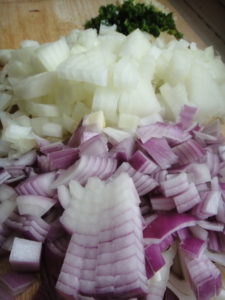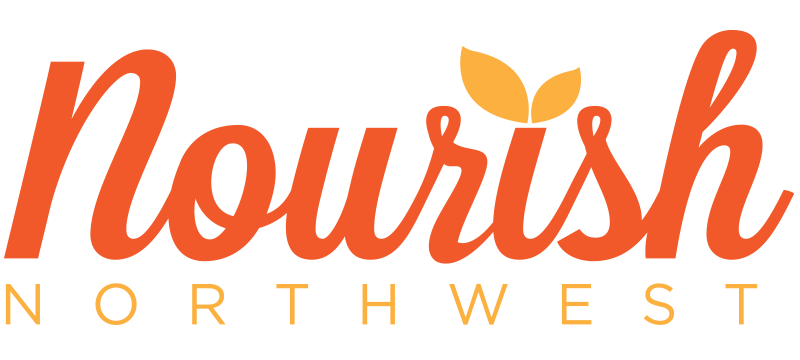Tummy Trouble? I might have a solution
Post by Olivia Martino, Registered Dietitian and Owner, Nourish Northwest
As a dietitian, one of the most common health issues I work with is IBS. Irritable Bowel Syndrome is a very common disorder that is diagnosed by symptoms, which vary from person to person and often involve abdominal pain or discomfort, cramping, bloating, diarrhea and/or constipation. The cause of IBS isn’t very well understood, which is why the treatment plan isn’t straightforward. It can be a guessing game as to why one might be affected by IBS, which makes determining an appropriate treatment plan the same. By the time people call me to set up an appointment, they have typically tried everything and are feeling hopeless, frustrated and most of all, uncomfortable.
Before I go into diet I need to touch on the relationship of stress to IBS. I truly believe in most cases, stress is either the cause of IBS or a major contributor. Have you ever been really nervous for something and your stomach started grumbling or cramping? This happens to a lot of us for an acute event, but imagine if you were exposed to a stressor for a prolonged period of time. Stress puts us in a state of fight or flight where our nervous system is mostly focused on survival and digestion becomes the last priority. About 80% of my IBS clients present as high anxiety people. They know this, they tell me this, and I can see it.
We are learning more and more about the gut-brain connection and it is pretty fascinating. Our mental state can affect our digestion directly by altering the gut bacteria. Our mood will also affect our food choices and prolonged consumption of sugar and processed foods will change our gut bacteria, as well. Unhealthy bacteria in our gut can lead to many of the symptoms of IBS: bloating, diarrhea, discomfort etc. Our gastrointestinal system is now commonly being referred to as our “little brain.”
Once again, treating IBS is complicated. There is no drug that can take away stress or help you handle it. Even as a health professional, I am not that well equipped to help people manage their life stressors. I can provide some techniques that I have seen work well for people, and also a shoulder to lean on, but if the stress isn’t directly addressed, we may not get anywhere with food recommendations. I am not a therapist, I am a dietitian, so lets move on to my area of expertise: food.
After seeing so many IBS clients and working on a trial and error basis to see which foods were exacerbating their symptoms, I decided to do a little more research and starting looking more into the FODMAPS diet. FODMAP is an acronym for Fermentable Oligosaccharides, Disaccharides, Monosachharides and Polyls. In other words, these are a group of short chain carbohydrates and sugar alcohols that are found in high amounts in many common foods, including beans, onions, garlic, dairy and fruit. The FODMAPS diet involves removing all of these foods for a period of at least two weeks, or until symptoms resolve and then systematically re-challenging food groups to determine which ones are problematic. The goal is not to avoid all FODMAPS foods for life, but to narrow it down to the specific foods that you should avoid in order to minimize or in many cases, eliminate your symptoms.

I first tested it out a few years back on one of our fitness instructors who was experiencing uncomfortable bloating all of the time and could not figure out why. After following the FODMAPS elimination diet an systematically re-challenging foods, she was able to determine which ones did not work well for her. Eliminating the foods that she determined were problematic for her has completely changed her life. I have seen this diet work miracles countless other times. It has surprised me and completely shocked my clients who thought they wouldn’t ever experience this kind of relief. I have led several clients through this process and after years of debilitating gastric symptoms they are finally feeling healthy again. For many IBS patients, this means they can leave the house again without having to worry if they are going to have an emergency. I had one client who was able to go on a backpacking trip and climb a mountain, something that would have never been possible prior to determining and eliminating her problematic foods. This is very exciting stuff!
However, this is a huge lifestyle change takes quite a bit of effort. Following a FODMAPS elimination diet is difficult. You first have to have a good understanding of what the extensive list of foods you need to avoid are and then learn how to prepare pretty much all of your meals without them. Going out to eat can be difficult as onions and garlic need to be omitted and are ubiquitous in most dishes. This is where I come in. I have created several delicious meal plans for people that are FODMAP free and tailored to their preferences. I can explain and guide you through the elimination, re-introduction and maintenance phase. If this sounds like something you might want to try please contact me to set up an appointment at olivia@nourishnorthwest.com!


